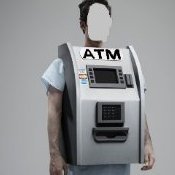Bangkok Bank BeWorst Card
-
Recently Browsing 0 members
- No registered users viewing this page.
-
Topics
-
-
Popular Contributors
-
-
Latest posts...
-
56
-
112
Report Rising Pedestrian Deaths Highlight Urgent Need for Enhanced Safety Measures
Bickering posts removed. -
13
Is private health insurance worth it for a long-term stay in Thailand?
Yes, I used to pay around that for variable power spectacles but not any longer as I had the cataract "Supersight" surgery to replace my eye lenses with ones that allow reading as well. But I can also tell you not to go to shops in malls or large department stores becaise they have to charge that price to pay their rent. You are always best advised to visit small family street shops as they haven't got the overheads of the big chains of optometrists. The price quoted at the chain shops can usually be halved in this way. Like everything, always get at least three quotations. -
57
2025 SSA Form 7162 - "Hello, are you dead yet?" forms.
Do you think that DOGE hasn't had an effect on how government services are delivered now? -
129
Report Thailand Tightens Alcohol Sales: New Rules Take Effect
Going back to work at 2pm because after that you can't buy any more booze? If it's the workers getting "fissed" that they're worried about, one would thaink that they would ban booze between 11 am and 2 pm? 🙂 -
95
Trump Wins on Injunctions
Why not try bring a fact to the table. It seems your type never can.
-
-
Popular in The Pub














Recommended Posts
Create an account or sign in to comment
You need to be a member in order to leave a comment
Create an account
Sign up for a new account in our community. It's easy!
Register a new accountSign in
Already have an account? Sign in here.
Sign In Now